
Find Help
More Items From Ergsy search
-
Are transactions with cryptocurrencies anonymous?
Relevance: 100%
-

What is cryptocurrency?
Relevance: 52%
-

What are the benefits of using cryptocurrencies?
Relevance: 47%
-

What is a decentralized cryptocurrency?
Relevance: 46%
-

What is a cryptocurrency wallet?
Relevance: 41%
-

What are the risks associated with cryptocurrencies?
Relevance: 40%
-

Is cryptocurrency legal?
Relevance: 40%
-

What is a cryptocurrency exchange?
Relevance: 38%
-

What are are Crypto Currencies like Bitcoin and XRP?
Relevance: 27%
-
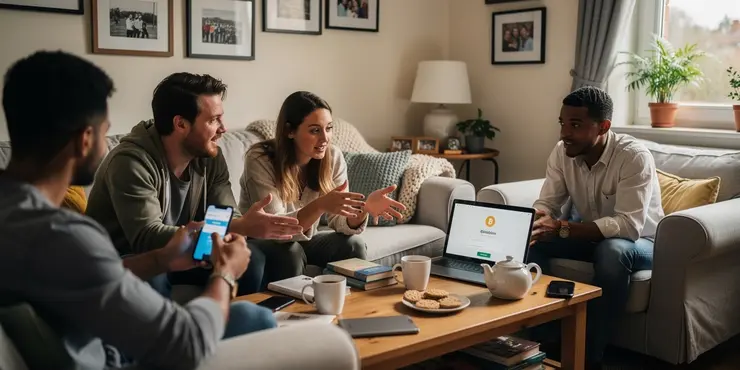
Can I use Bitcoin or XRP for purchases?
Relevance: 24%
-

How can I buy Bitcoin or XRP?
Relevance: 22%
-

What is XRP?
Relevance: 21%
-

Can XRP be mined?
Relevance: 21%
-

How is XRP different from Bitcoin?
Relevance: 19%
-

What is blockchain?
Relevance: 18%
-

Is there a minimum transfer amount required?
Relevance: 17%
-

What is the Lightning Network?
Relevance: 17%
-

The Most Dangerous Crypto Scam: Victims Speak Out
Relevance: 16%
-

What is a smart contract?
Relevance: 16%
-

Crypto Scams Exposed - Protect Your Investments Now!
Relevance: 14%
-

What is money laundering?
Relevance: 14%
-

What role does Ripple Labs play in the XRP ecosystem?
Relevance: 12%
-

Don't Fall for These 7 Cybersecurity Scams!
Relevance: 12%
-

Scams of 2024/2025 ? (Be Aware)
Relevance: 12%
-

Common Scams to Avoid in 2025 (And How to Outsmart Them!) | Stay Safe Online
Relevance: 12%
-
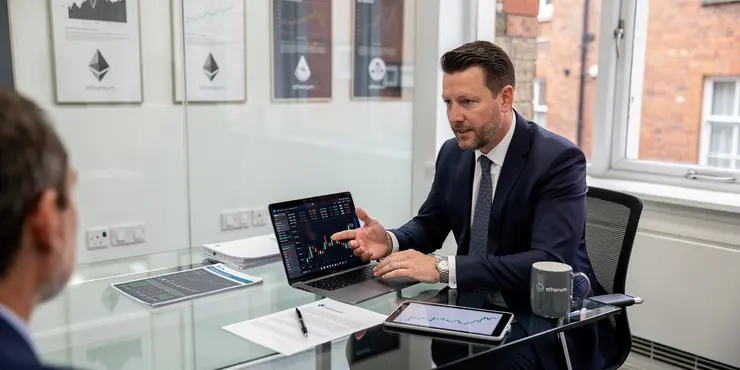
Is Ethereum Crypto Currency a safe investment?
Relevance: 11%
-
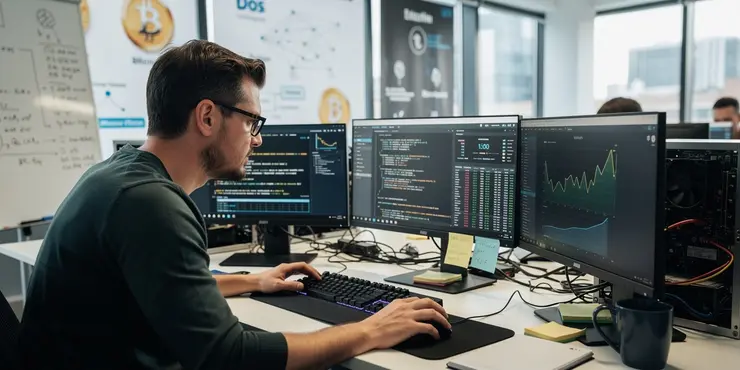
What is mining in the context of Bitcoin?
Relevance: 11%
-

Common Scams to Avoid in 2025 (And How to Outsmart Them!) | Stay Safe Online
Relevance: 11%
-

What about Stamp Duty in Wales?
Relevance: 10%
-

What resources are available for someone struggling with binge drinking?
Relevance: 10%
-

Can businesses be charged Stamp Duty?
Relevance: 10%
-
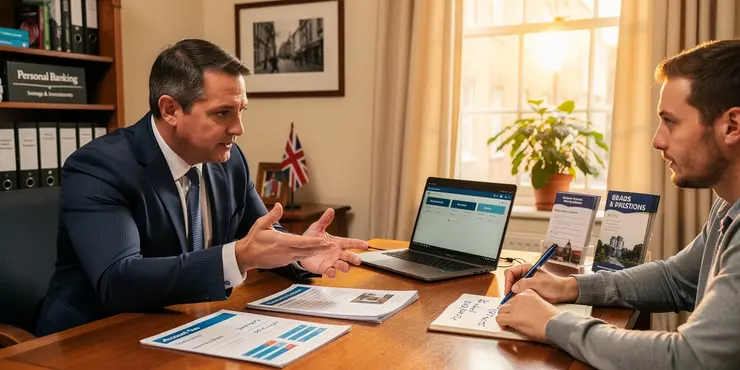
What fees should I avoid when choosing a new bank?
Relevance: 9%
-

What fees should I avoid when choosing a new bank?
Relevance: 9%
-

Are there any hidden fees with Monzo or Revolut?
Relevance: 9%
-

How do I pay Stamp Duty in the UK?
Relevance: 9%
-

How is the price of Bitcoin determined?
Relevance: 9%
-
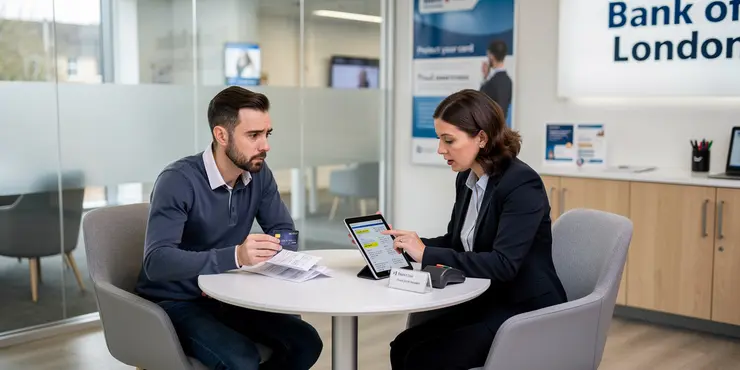
What is credit card fraud?
Relevance: 9%
-

Can IVF be done with donor eggs or sperm?
Relevance: 9%
-

Why do we pay Stamp Duty?
Relevance: 9%
-

Can I receive the payment if I live abroad?
Relevance: 9%
Understanding Cryptocurrency Anonymity
Cryptocurrencies have often been associated with anonymity, but the reality is more nuanced. While cryptocurrencies were initially praised for offering a degree of privacy not available in traditional financial systems, they do not provide complete anonymity. In fact, most cryptocurrencies are pseudonymous rather than anonymous.
The Pseudonymous Nature of Cryptocurrencies
When you conduct a transaction with cryptocurrencies, such as Bitcoin, the transaction is recorded on a public ledger known as the blockchain. This ledger contains transaction data including wallet addresses, timestamps, and amounts. While your personal identity is not directly tied to these wallet addresses, each transaction can be linked to a specific wallet address, thereby creating a pseudonymous profile. If your identity is ever linked to that address, all associated transactions can potentially be traced back to you.
Privacy-Focused Cryptocurrencies
In response to privacy concerns, some cryptocurrencies have been developed with features specifically designed to enhance anonymity. Monero and Zcash are two examples of privacy-focused cryptocurrencies. They use advanced cryptographic techniques to obscure transaction details, making it more difficult to trace transactions back to individuals. However, these cryptocurrencies still face challenges, including regulatory scrutiny and potential vulnerabilities.
Regulatory and Legal Considerations
In the UK, as in many other countries, regulatory bodies are scrutinizing cryptocurrencies more closely. The Financial Conduct Authority (FCA) plays a significant role in overseeing cryptocurrency exchanges and businesses. As regulations evolve, the requirement for compliance can compel exchanges to implement KYC (Know Your Customer) processes. These processes can reduce anonymity by linking identities to transactions.
The Limits of Anonymity
While efforts are made to enhance privacy, the inherent transparency of blockchain technology makes true anonymity difficult to achieve. Blockchain analysis companies are continually improving their methods to trace transactions, posing a challenge for those seeking complete anonymity. Furthermore, the need for exchanges to comply with anti-money laundering regulations increases the likelihood of identities being revealed.
Practical Steps for Enhancing Privacy
If privacy is a significant concern, individuals can take steps to enhance their anonymity when using cryptocurrencies. This can include using privacy coins, incorporating mixing services, or employing privacy-oriented wallets. However, it's crucial to remain informed about the legal implications and potential risks associated with these methods.
Conclusion
Transactions with cryptocurrencies are not entirely anonymous; they are better described as pseudonymous. While advanced techniques and privacy-focused coins can offer increased anonymity, users should be aware of the risks and regulatory landscape. It is essential to stay informed and adopt good practices for privacy when engaging with cryptocurrencies in the UK.
Understanding Cryptocurrency Anonymity
Cryptocurrencies are often thought to keep users unknown, but this is not completely true. At first, people liked them because they seemed private compared to normal banks. But cryptocurrencies do not keep people completely secret. Most cryptocurrencies hide your name, but not everything about you.
The Pseudonymous Nature of Cryptocurrencies
When you use cryptocurrencies like Bitcoin, all transactions are written in a public book called the blockchain. This book shows things like wallet addresses (like your digital wallet's name), times, and amounts. Your name is not shown, but each wallet address can be tracked. If someone finds out who owns a wallet address, other transactions linked to it can also be traced back to you.
Privacy-Focused Cryptocurrencies
Some cryptocurrencies try to be more private on purpose. Examples are Monero and Zcash. They use special techniques to hide transaction details, making it harder for others to know what you did. But they still have some problems, like being watched by the law and possible weaknesses.
Regulatory and Legal Considerations
In the UK and other places, people in charge are looking at cryptocurrencies closely. The Financial Conduct Authority (FCA) is one such group. They watch over cryptocurrency businesses. As rules change, exchanges (places where you trade cryptocurrencies) may need to follow KYC (Know Your Customer) rules. This means they might need to know who you are, which makes it harder to stay unknown.
The Limits of Anonymity
Even with privacy efforts, blockchain technology is very open for everyone to see. This makes it tough to stay fully secret. Companies are getting better at following transactions, so staying completely unknown is hard. Plus, exchanges have to follow rules to stop money crimes, making it more likely that identities are known.
Practical Steps for Enhancing Privacy
If staying private is very important to you, there are ways to get more privacy. You can use privacy coins, mixing services (which mix up transactions), or special wallets that focus on privacy. But it's key to know the law and any dangers with these methods.
Conclusion
Cryptocurrency transactions are not fully secret; instead, they hide some details. Advanced techniques and privacy coins can help increase privacy, but there are still risks. It's important for users in the UK to know the rules and use good privacy practices when using cryptocurrencies.
Frequently Asked Questions
Are cryptocurrency transactions anonymous?
Cryptocurrency transactions are not completely anonymous. They are pseudonymous, meaning transactions are recorded on the blockchain with a public address that does not reveal personal identity, but patterns can be analyzed.
Can someone track my cryptocurrency transactions?
Yes, transactions are recorded on public blockchains. While the identity behind addresses is not directly displayed, patterns and additional information can potentially identify users.
What is the difference between pseudonymous and anonymous transactions?
Pseudonymous transactions are linked to numerical addresses rather than personal identities, while anonymous transactions have no identifying link to users at all.
Why are cryptocurrency transactions considered pseudonymous?
Transactions are recorded on the blockchain using public addresses rather than personal information; however, these addresses can eventually be traced back to users.
Are certain cryptocurrencies more anonymous than others?
Yes, some cryptocurrencies like Monero and Zcash offer privacy features to enhance transaction anonymity beyond what is available with Bitcoin or Ethereum.
How can I increase the anonymity of my cryptocurrency transactions?
To increase anonymity, consider using privacy-focused coins, mixing services, or employing additional privacy tools and practices.
Is using a VPN necessary for anonymous cryptocurrency transactions?
While a VPN can add an extra layer of privacy by obscuring your IP address, it cannot make cryptocurrency transactions completely anonymous.
What role do mixers play in cryptocurrency anonymity?
Mixers combine multiple transactions to obscure the original source of funds, enhancing transaction anonymity but not providing total anonymity.
Does using an exchange affect cryptocurrency anonymity?
Yes, most exchanges require KYC, linking your identity to your wallet, which decreases anonymity. Some decentralized exchanges provide greater privacy.
Can law enforcement track cryptocurrency transactions?
Law enforcement agencies can track public blockchain transactions and may use tools to analyze patterns and identify associated entities.
Is it illegal to use cryptocurrency anonymously?
Using cryptocurrency anonymously is not illegal, but using it for illegal activities can violate law. Transparency and regulation depend on jurisdiction.
What privacy coins are available?
Privacy coins include Monero, Zcash, Dash, and Grin, among others, each offering varying levels of financial privacy.
How does Monero enhance transaction privacy?
Monero uses ring signatures, stealth addresses, and confidential transactions to hide transaction details, making it greatly resistant to tracking.
What are stealth addresses?
Stealth addresses mask receiver addresses in transactions, ensuring only sender and receiver can determine the involved parties.
Why is blockchain transparency a concern for privacy?
Blockchain transparency means all transactions are visible publicly, which can lead to privacy issues when mapping addresses to individuals.
Can I use Bitcoin anonymously?
Bitcoin can be used pseudonymously. Techniques like mixing, using new addresses, and privacy coins can increase anonymity but not ensure it.
What is the 'dark web' in the context of cryptocurrency?
The dark web encapsulates web parts not indexed by search engines, where cryptocurrencies sometimes enable anonymous transactions for illicit activities.
Is there a difference between privacy and anonymity?
Yes, privacy pertains to control over personal information, while anonymity refers to the absence of identification.
How do zero-knowledge proofs work in privacy coins?
Zero-knowledge proofs allow transaction validation without revealing sender, receiver, or transaction amount, used in coins like Zcash.
What are some best practices for maintaining privacy in cryptocurrency transactions?
Best practices include using privacy coins, regularly changing wallet addresses, avoiding linking personal information with addresses, and utilizing VPNs.
Can people see what you do with cryptocurrency?
Cryptocurrency transactions are not totally secret. They use fake names, which means each trade is recorded on the blockchain with a public address that doesn't show who you are. But, people can still look at the patterns and guess things.
Can someone see my cryptocurrency money moves?
Yes, transactions are kept in a public list called a blockchain. We can't see who owns the addresses, but if we look at patterns and extra information, we might find out who some people are.
What is the difference between anonymous and pseudonymous transactions?
Let's talk about two words: anonymous and pseudonymous. They both deal with how people can hide their names in transactions, but they have small differences.
Anonymous Transactions: This means no one knows who you are. Your name and details are hidden. A helpful tool for this is using cash, where you don't share your name.
Pseudonymous Transactions: This means you use a fake name or nickname. People see this fake name, but they can’t easily tell who you are. One way to do this is by using a username online.
If you need help understanding or remembering this, try writing down the main points or drawing a picture. This can make it easier to understand.
Pseudonymous transactions use numbers instead of real names. Anonymous transactions do not show any personal information at all.
Try using text-to-speech software to help you read. You can also ask someone to read with you.
Why are cryptocurrency transactions called pseudonymous?
Cryptocurrency transactions are called pseudonymous because they don't use real names. Instead, they use codes or numbers. These codes are called "addresses."
This means people can see the transaction but not know who made it.
If it's hard to understand, you can:
- Ask someone for help.
- Use pictures or videos to learn more.
- Try reading with a friend.
When people buy or sell things on the blockchain, it does not show their personal information. Instead, it shows public addresses. But, people can find out who these addresses belong to later on.
Are some cryptocurrencies more private than others?
Some types of digital money are better at keeping secrets than others.
They try to keep your information safe when you use them.
To help understand better, you can:
- Use simple words.
- Ask someone you trust to explain.
- Look for videos that show how it works.
Yes, some types of digital money, like Monero and Zcash, help keep your buying and selling secret. They are better at hiding what you do with your money than Bitcoin or Ethereum.
How can I keep my cryptocurrency transactions private?
Here are some simple tips to help keep your cryptocurrency dealings private and safe.
- Use a new address each time you get cryptocurrency.
- Do not share your wallet information with anyone.
- Think about using privacy-focused coins that are designed to hide your identity.
- Connect to the internet through a VPN to keep your location secret.
- Try using a mixing service that can blend your coins with others, making them hard to trace.
Remember, keeping your deals private can keep your information safe! If you need help, ask a friend or use tools online to guide you.
To stay private with your money, you can use special types of coins, special services that mix your money, or other tools that help keep your information secret.
Do you need a VPN to keep your cryptocurrency deals secret?
Sometimes people want to keep their money deals private. A VPN can help with this. A VPN is like a secret tunnel for your internet connection. It can hide where you are and what you are doing online.
Using a VPN might be a good idea if you want to keep your cryptocurrency deals secret. But remember, it's also important to use other safety steps. These could be:
- Using strong passwords.
- Turning on two-step check for accounts.
- Keeping your software up-to-date.
Ask someone you trust for help if you are not sure what to do. They can help you learn more about VPNs and cryptocurrency.
A VPN can help keep your internet activity private by hiding your IP address. But, it cannot make cryptocurrency transactions totally secret.
How do mixers help keep cryptocurrency private?
Mixers mix up lots of money transactions. This helps hide where the money first came from. It makes it hard to see who sent the money, but it doesn't hide it completely.
Tools that can help you understand this better:
- Ask someone you trust to explain it in their own words.
- Use a drawing or diagram to show how mixing works.
Does an exchange change how private my cryptocurrency is?
Yes, most places where you trade money need to know who you are. They ask for your ID and connect it to your wallet. This means people know it is you. Some other trading places keep your secret better.
Can the police see where cryptocurrency money goes?
Cryptocurrency is a type of digital money. Sometimes, people use it to buy things online.
Here is what you need to know:
- Police can try to see where the money goes: The police have special tools to follow the path of cryptocurrency. This helps them see if the money is used for something bad.
- It can be hard to track: Sometimes, it is not easy for the police to follow the money because it is hidden.
- They get help: Experts help the police to understand and find the path of the cryptocurrency transactions.
If you want to learn more, you can watch videos or ask an adult to explain.
Police can see what happens on public blockchains. They have tools to find patterns and see who is involved.
Can you use cryptocurrency without anyone knowing?
Sometimes laws can be tricky. If you're using cryptocurrency and want to keep it a secret, it can be hard to know if it’s allowed.
Here are some tips to help you:
- Ask an adult to help you understand the rules.
- Look for online guides that explain it simply.
- Use apps that can read text out loud.
It is not against the law to use cryptocurrency without sharing who you are. But, if you use it to do something illegal, that can break the law. Different places have different rules. Some places want to see more details about what you do with cryptocurrency, while others have fewer rules.
What are privacy coins?
Privacy coins are types of money you can use on the internet. They help keep your info secret when you spend them.
Which privacy coins can I use?
Here are some privacy coins:
- Monero (XMR): This is a popular one. It hides your information very well.
- Zcash (ZEC): This coin can be used secretly or openly. You can choose.
- Dash (DASH): This is another coin that can keep spending private.
- Verge (XVG): It uses lots of tools to keep your money moves secret.
These coins help keep your online money moves private. You might need help from a grown-up to use them.
Tip: You can use apps to help you. Some apps explain things in easy ways or let you practice before using real coins.
Privacy coins are special kinds of money you can use online. Some examples are Monero, Zcash, Dash, and Grin. These coins help keep your money activities private. Some are better at keeping secrets than others.
How does Monero keep transactions private?
Monero helps to keep your money safe and secret when you use it. Here are some tools that Monero uses to keep your transactions private:
- Secret Codes: Monero uses special codes to hide details. This means nobody can see who sent or received money.
- Hidden Addresses: Monero gives you a new, hidden address for each transaction. This keeps your real address secret.
- Mixing Money: Monero mixes your money with others. This makes it hard for anyone to know whose money is whose.
If you need more help, you can:
- Watch videos about Monero online.
- Ask someone you trust to explain it to you.
- Use simple guides about Monero.
These steps can help you understand how Monero keeps things private.
Monero is a type of money used on the internet. It keeps things secret. It uses a few tricks to do this:
- Ring signatures: It hides who sent the money.
- Stealth addresses: It hides who gets the money.
- Confidential transactions: It hides how much money was sent.
These tricks make it really hard for anyone to track Monero transactions.
For those who find reading hard, using tools like text-to-speech can help. They read out the words to you. You can also ask someone else to help you understand.
What are stealth addresses?
A stealth address is like a secret code for sending and receiving money. It helps keep your information private. It's used with digital money, like Bitcoin, to make sure no one can see who is sending or getting the money.
If you want to learn more, you can watch simple videos online. There are also apps and tools that can help you understand better. Reading with a friend or family member can also make it easier.
Stealth addresses hide who gets money in transactions. Only the person sending and the person receiving know who they are.
Why does blockchain being open worry some people about keeping things private?
Blockchains are like big digital notebooks that everyone can see.
People worry because anyone can look at this notebook and see what is written.
This means some things you do might not stay secret.
You can use tools like private wallets to help keep your info safe.
Blockchain is like a big book where everyone can see what happens. This means anyone can see what people do, which can be a problem if they know who you are.
Here are some tools and techniques to help:
- Use different addresses: Change your address often so it’s harder for people to know it’s you.
- Mix your coins: Use coin mixing services to make it difficult for people to trace your transactions.
- Learn about privacy coins: Some types of cryptocurrency help keep things private. You can find out more about them.
Can I use Bitcoin without anyone knowing who I am?
Bitcoin does not show your name. But it shows numbers called "addresses." People can see these addresses. They might figure out who you are.
To keep your Bitcoin use private, you can:
- Use a new address for each payment.
- Use tools like VPNs to hide your internet activity.
- Learn about mixing services that mix your Bitcoin with others.
Ask for help if you are unsure. It's important to stay safe online.
Bitcoin can be used without people knowing your real name. You can use tricks like mixing, using new addresses, and special coins to be more private. But these tricks cannot keep you totally secret.
What is the 'dark web' when we talk about cryptocurrency?
The 'dark web' is a special part of the internet that most people do not see. You need special tools to go there, like the Tor browser.
People sometimes use the dark web to buy and sell things secretly. They often use cryptocurrencies like Bitcoin because it is harder to trace than regular money.
The dark web is a part of the internet that hidden websites live on. You can’t find these sites using regular search engines like Google. People sometimes use cryptocurrencies, like special online money, to buy and sell things secretly on the dark web. Some of these things might be against the law.
Is privacy the same as anonymity?
Privacy means keeping personal things to yourself. Anonymity means nobody knows who you are.
To help you understand better, you can:
- Use pictures to explain.
- Ask someone to read with you.
- Watch videos about privacy and anonymity.
Yes, privacy means keeping your personal information safe. Anonymity means no one knows who you are.
How do privacy coins keep secrets safe?
Some coins keep secrets safe to protect your information. These coins use special tricks to do this.
A zero-knowledge proof is a special trick. It lets you show a coin is yours without telling anyone more information.
You prove you have the coin, but your information stays secret.
Here are some helpful tools to understand better:
- Pictures: Drawings can help you see how it works.
- Video: Watching a video can make it easier to understand.
- Friend: Ask a friend to explain it in a simple way.
Zero-knowledge proofs are a way to check that a payment is okay without showing who sent it, who got it, or how much money it is. Coins like Zcash use this method.
How can you keep your information safe when using cryptocurrency?
Here are some tips to help you:
- Use a special wallet to keep your cryptocurrency safe.
- Do not share your password or private key with anyone.
- Use a new address each time you send or receive cryptocurrency.
- Be careful when giving out personal information online.
- Use secure internet connections, like your home Wi-Fi, not public Wi-Fi.
- Consider using special tools that hide your identity.
These tips can help keep your cryptocurrency safe and private.
Here are some tips to keep your money safe:
- Use special coins that help keep things private.
- Change your wallet address often.
- Don’t put your personal information with your wallet address.
- Use a VPN. It helps keep your internet activity private.
Useful Links
This website offers general information and is not a substitute for professional advice.
Always seek guidance from qualified professionals.
If you have any medical concerns or need urgent help, contact a healthcare professional or emergency services immediately.
Some of this content was generated with AI assistance. We’ve done our best to keep it accurate, helpful, and human-friendly.
- Ergsy carfully checks the information in the videos we provide here.
- Videos shown by Youtube after a video has completed, have NOT been reviewed by ERGSY.
- To view, click the arrow in centre of video.
- Most of the videos you find here will have subtitles and/or closed captions available.
- You may need to turn these on, and choose your preferred language.
- Go to the video you'd like to watch.
- If closed captions (CC) are available, settings will be visible on the bottom right of the video player.
- To turn on Captions, click settings .
- To turn off Captions, click settings again.
More Items From Ergsy search
-
Are transactions with cryptocurrencies anonymous?
Relevance: 100%
-

What is cryptocurrency?
Relevance: 52%
-

What are the benefits of using cryptocurrencies?
Relevance: 47%
-

What is a decentralized cryptocurrency?
Relevance: 46%
-

What is a cryptocurrency wallet?
Relevance: 41%
-

What are the risks associated with cryptocurrencies?
Relevance: 40%
-

Is cryptocurrency legal?
Relevance: 40%
-

What is a cryptocurrency exchange?
Relevance: 38%
-

What are are Crypto Currencies like Bitcoin and XRP?
Relevance: 27%
-

Can I use Bitcoin or XRP for purchases?
Relevance: 24%
-

How can I buy Bitcoin or XRP?
Relevance: 22%
-

What is XRP?
Relevance: 21%
-

Can XRP be mined?
Relevance: 21%
-

How is XRP different from Bitcoin?
Relevance: 19%
-

What is blockchain?
Relevance: 18%
-

Is there a minimum transfer amount required?
Relevance: 17%
-

What is the Lightning Network?
Relevance: 17%
-

The Most Dangerous Crypto Scam: Victims Speak Out
Relevance: 16%
-

What is a smart contract?
Relevance: 16%
-

Crypto Scams Exposed - Protect Your Investments Now!
Relevance: 14%
-

What is money laundering?
Relevance: 14%
-

What role does Ripple Labs play in the XRP ecosystem?
Relevance: 12%
-

Don't Fall for These 7 Cybersecurity Scams!
Relevance: 12%
-

Scams of 2024/2025 ? (Be Aware)
Relevance: 12%
-

Common Scams to Avoid in 2025 (And How to Outsmart Them!) | Stay Safe Online
Relevance: 12%
-

Is Ethereum Crypto Currency a safe investment?
Relevance: 11%
-

What is mining in the context of Bitcoin?
Relevance: 11%
-

Common Scams to Avoid in 2025 (And How to Outsmart Them!) | Stay Safe Online
Relevance: 11%
-

What about Stamp Duty in Wales?
Relevance: 10%
-

What resources are available for someone struggling with binge drinking?
Relevance: 10%
-

Can businesses be charged Stamp Duty?
Relevance: 10%
-

What fees should I avoid when choosing a new bank?
Relevance: 9%
-

What fees should I avoid when choosing a new bank?
Relevance: 9%
-

Are there any hidden fees with Monzo or Revolut?
Relevance: 9%
-

How do I pay Stamp Duty in the UK?
Relevance: 9%
-

How is the price of Bitcoin determined?
Relevance: 9%
-

What is credit card fraud?
Relevance: 9%
-

Can IVF be done with donor eggs or sperm?
Relevance: 9%
-

Why do we pay Stamp Duty?
Relevance: 9%
-

Can I receive the payment if I live abroad?
Relevance: 9%


